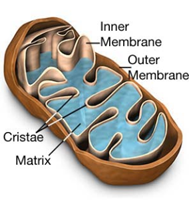The great mitochondria transfer debate
On 19 November Science London joins forces with the Academy of Medical Sciences (AMS) to facilitate an open debate into the Human Fertilisation and Embryology Authority’s (HFEA) public consultation regarding novel techniques of mitochondria replacement.
If you missed this you can watch it online here or through the embedded video below.
A previous scientific review undertaken by the HFEA concluded that there is no evidence to suggest the techniques are unsafe. However, as the science is so new it was recommended that further research in human eggs and embryos was needed. It is this work that is currently being undertaken at a Wellcome Trust funded centre in Newcastle.
The HFEA also launched a public consultation in September to gather views on the social and ethical impact of making these techniques available to patients. Their accessible and interactive consultation website explains the science and ethical issues we hope to expand upon in this public debate event.
Science London’s very own Dr Ben Still be chairing a leading a panel of experts on the night discussing how these mitochondrial diseases impact on human life, the scientific principles behind the replacement techniques and the ethical issues we should be considering.
The panel will be made up of:
Michael Duchen is a Professor of Physiology at University College London and Chair of Basic Life Sciences Domain. He has worked in the field of mitochondrial research for the last 20 years, and has pioneered the develop approaches to study mitochondrial function at the level of single cells in the context of cell physiology. He served on the editorial board of the Journal of Physiology and Membrane Biophysics, and is now holds a position on the advisory board of the Biochemical Journal as well as bring a member of the United Mitochondrial Disease Foundation.
Mary Herbert is Professor of Reproductive Biology at Newcastle University’s Institute for Ageing and Health. Her research focuses on developing IVF-based techniques to prevent transmission of mitochondrial DNA disease from mother to child. Her team also works on understanding how chromosome segregation is regulated in oocytes and why this becomes error prone as women get older. She is Scientific Director of the Fertility centre at the Newcastle centre for Life, where she is responsible for the clinical laboratory service.
Dr Geoff Watts was the Chair the Nuffield Council on Bioethics’ Working Group on mitochondrial donation and is a member of the Nuffield Council on Bioethics. He spent five years in research before becoming a science and medical writer and broadcaster. He presented BBC Radio 4’s Medicine Now and, more recently, its science programme Leading Edge. He was a founder member of, and served for six years on, the Human Genetics Commission.
You will be invited to ask questions and debate the issues with the experts before we end the evening with drinks at Portland Place (cash only bar).
Science London and the AMS are passionate about making science attainable and engaging for the general public. We believe this consultation is a topic which demands our attention as it has the potential to change fertility and medical treatment for generations to come.
We hope that you can come and join us on 19 November for what promises to be an evening of thought provoking science and ethical debate.
Date: Monday 19th November 2012
Time: 7pm to 9pm
Place: The Academy of Medical Sciences, 41 Portland Place London W1B 1QH [gmap]
Cost: Free!
This site is powered by WordPress.
Science London was part of the British Science Association

